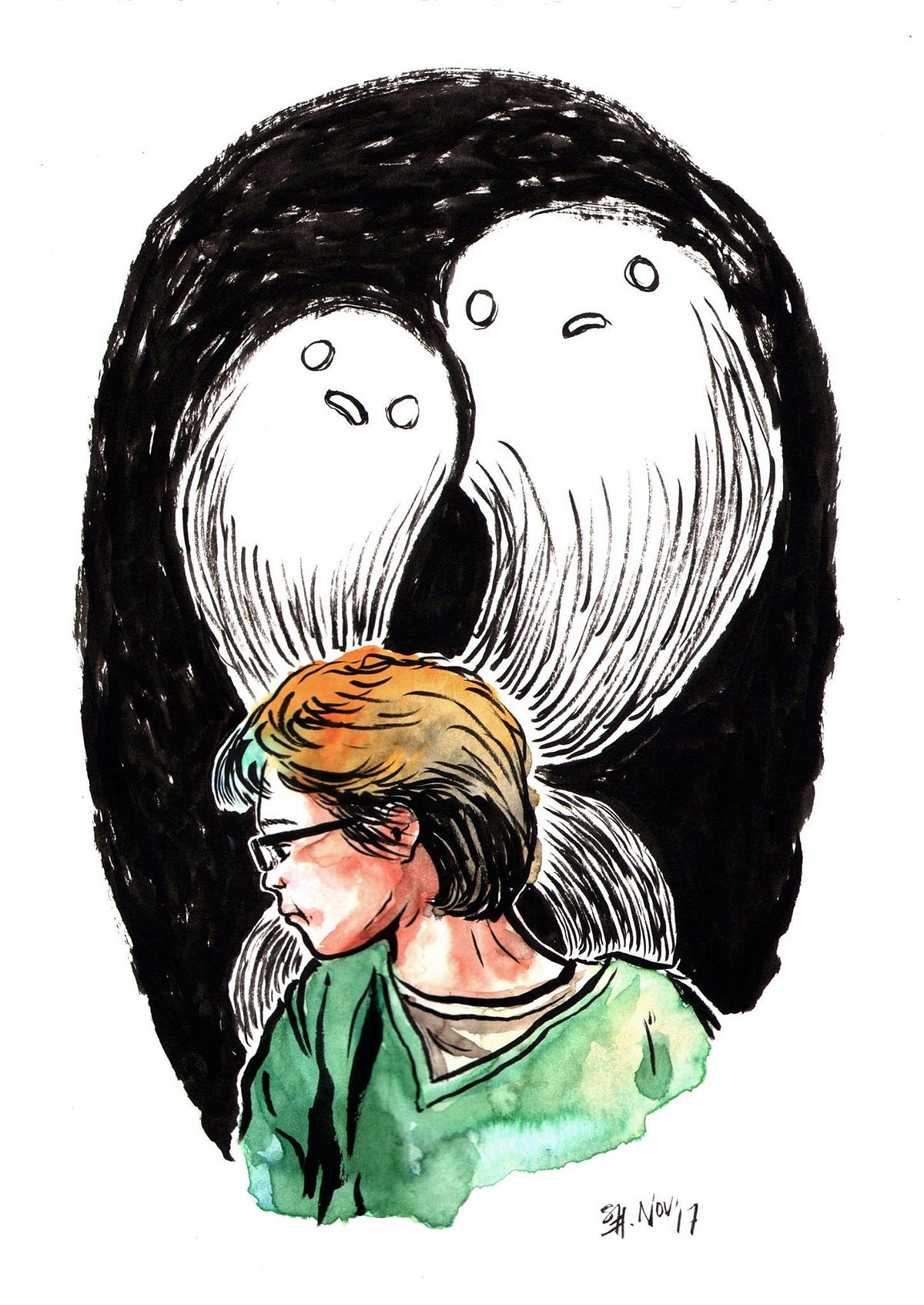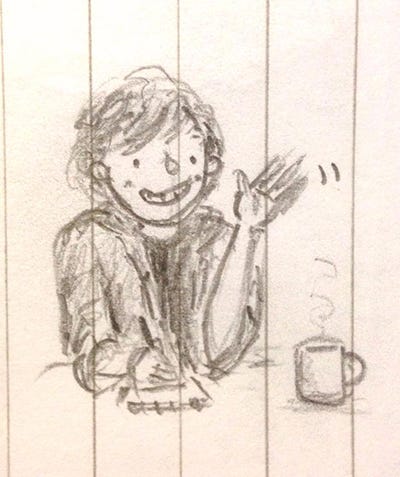medium.com/@sonyahallett
Asides from the fact that emotions are difficult and most people might be bad at describing complex ones, I’ve also been reading a lot more references to how many autistic people have alexithymia. I’m not disputing that this is probably true: I personally have and do struggle with identifying and describing exactly what I’m feeling, despite being very into words. Ever since I was very little, up to today, whenever I have strong or difficult feelings I want to communicate, my first thought is often to put it into a drawing (for some years in my teens I also tried to do this through complicated poetic metaphors), most of which still frustratingly failed to adequately get what I needed across, or even clarify it for myself—so in that sense alexithymia is a useful concept to give a name to this difficulty. However, I do have a problem with how it’s often framed or thought about.
The way that alexithymia is sometimes talked about refers to it like one of the many other ‘deficits’ or traits someone might list in a deficit-based description of autism: ‘Why does this person have alexithymia?’ ‘Oh because they’re autistic.’ I don’t think this is a satisfactory explanation (to be fair I feel this is true of any listing of traits — explanations and motivations are far more informative), and is a pretty unhelpful end-point for any discussion aimed at being helpful or improving understanding.
Given that we are seeing increasing numbers of studies supporting idea of the double empathy problem, and more generally support for there being differences rather than deficits with communication between autistic and allistic people, surely a far more nuanced and helpful explanation would be: autistic people often find it hard to identify and describe our emotions partly because we have not been exposed to the right language to learn how to do it.
No one is born able to talk about their emotions. We also know that speakers of different languages, or even the same language over time, can describe supposedly the same emotions very differently, and even as a result relate to them differently, due to different nuances in meaning in emotion-related words, and other cultural associations (such as if a feeling usually has pejorative or serious connotations). If we start from the assumption that autistic folks, and neurodivergent people more broadly, are likely to experience the world atypically, and react to things very differently, it would stand to reason that the words we are taught to describe our feelings by society often won’t adequately line-up for many of us, with what we’re really feeling. If how a cartoon or kids book character, for example, responds to a scenario doesn’t line up with our own, how can we learn what the right emotion words for conveying our own reactions should be? And that’s not to mention those around us also misidentifying our emotions and perhaps mis-naming them. These types of disconnect could quite reasonably leave a person confused, and without the same ease in finding the right words for their feelings, or the ability to accurately pinpoint them, that people might typically expect.
These differences would also be exacerbated by how often people who react differently to things from the majority might be told their feelings are wrong: “you can’t really be so upset over that!”, “why would you be so excited/scared/etc?” Those who react more like the majority are unsurprisingly more likely to have their feelings and reactions accurately named and validated, than those who react atypically. |
| I think I drew this because I desperately needed some coffee but it’s hard to be sure. [image: Ink drawing of sad moose sitting in and slumping over the rim of a disposable coffee cup.] |
The other thing about thinking about the causes or motivation behind problems in more depth, rather than stopping at the supposed ‘problem,’ is that it can help with figuring out solutions. I have noticed just in the last few years, as I’ve gotten to know more autistic people and learned more about myself, how much I’ve dramatically improved in my ability to identify and describe my emotions—and other bodily feelings. It really helps to have a community who don’t react to my descriptions by saying “that’s weird” or “surely you mean you’re [insert different emotion/reaction]”, and also to have read so many other first-person accounts from other autistic people that chime with my own. Having the language to communicate my feelings with others who can relate is amazingly powerful, and it feels like every new revelation helps me to figure something new out, and describe it better. It makes me think a lot about how important community can be, how much we can learn by having people we can relate to in our lives, and how valuable it is for us to have ever more accurate and authentic representations of different ways of seeing and experiencing the world.
This essay was originally published at Medium.







0 comments:
Post a Comment